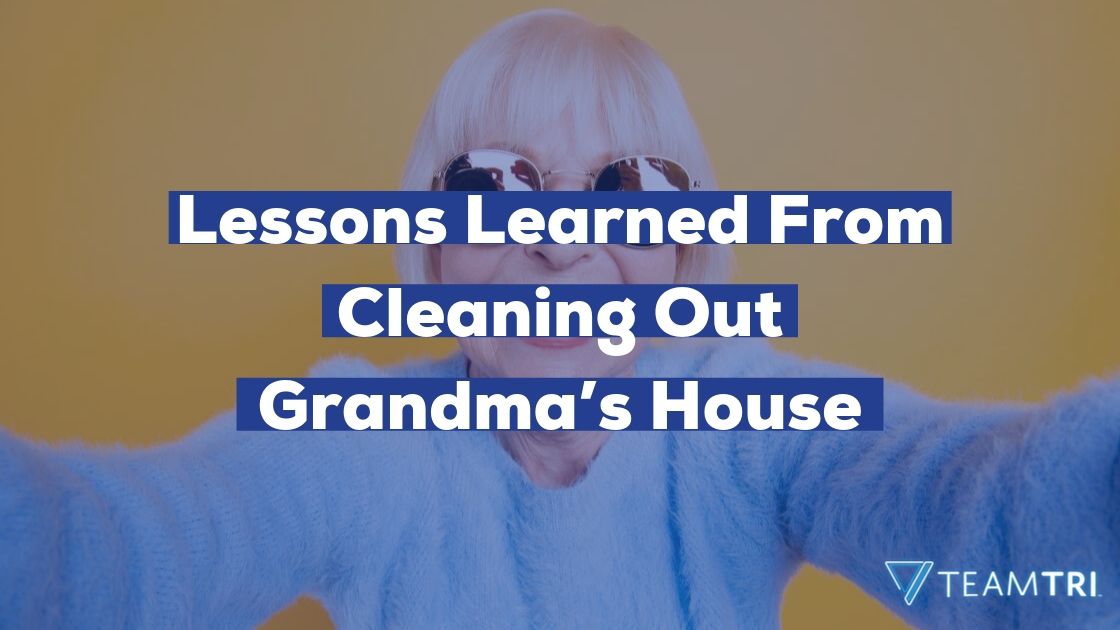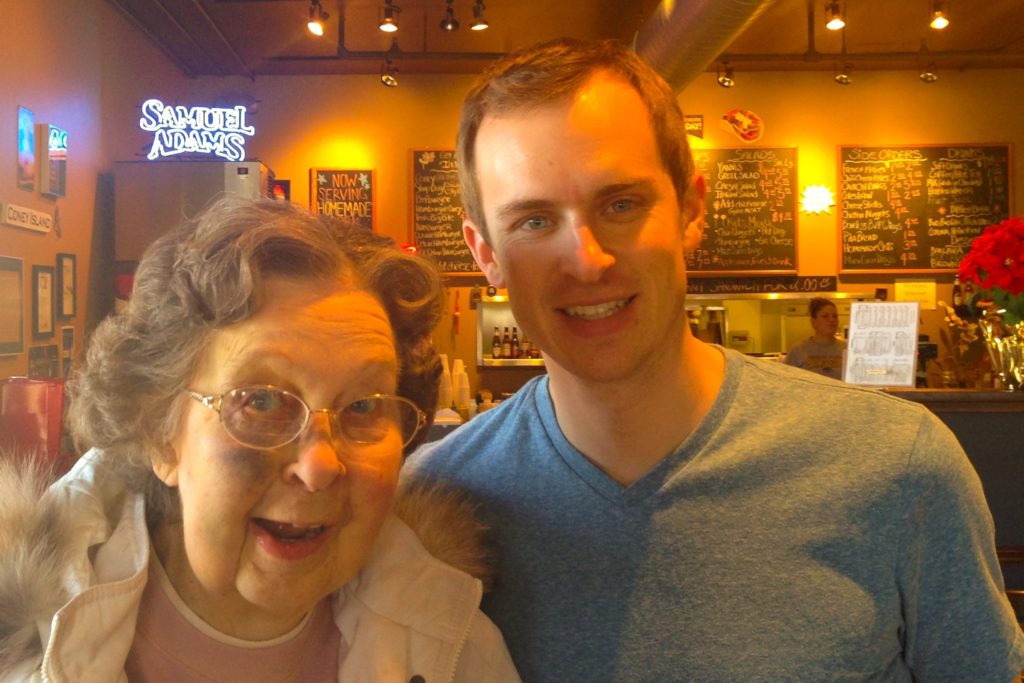A few years ago, my grandma moved out of her home – the same one she had lived in for forty years – and into an assisted living facility. This began our family’s task of having to scour through the boxes stored deep in the basement and clean out, declutter, and sort through possessions. As we went through this process, I learned two key lessons about true value that are worth sharing.
As a less sentimental person who prides himself on efficiency, I suggested we take a Saturday, get a dumpster delivered to the house, and make quick work of clearing out the house to sell. Most of the stuff wasn’t sparking joy for us (thank you Marie Kondo), so I wanted to make piles for donations, trash, and what we can sell. An entire house cleaned out in a day! Sounds like the perfect plan, right?

Yet some of my relatives wanted to go through room-by-room, box-by-box, and piece-by-piece. Their strategy was to see who might want each item, where to sell it and how much to sell it for. My grandma’s collection of more than 200 decorative apples she had collected from all over the world was a project in itself…

Value is Not the Same as Price
One family member thought everything was of high value and would fetch a great rate on the secondhand market. I looked at the same piece of furniture and thought “you could not pay me to take that.” I learned quickly emotional value and sale price are two different items. The family had a lot of emotional value in the history, memories, and significance of each item. They may not be worth a lot of money, but that doesn’t mean they do not hold value to someone.
Emotional value and sale price are two different items.
Possessions are only as Valuable as what Someone is Willing to Pay for Them
My dad is an ardent collector of sports memorabilia. He has more boxes than he knows what to do with or has space to display (as my mom and I continually remind him). His years of collecting sports memorabilia have likely brought him more joy than I realize (especially since I was quick to sell my baseball cards at the neighborhood garage sale for a quick dollar).
But in the last ten years, my dad has realized the market to sell old-time baseball cards is, for lack of a better phrase, dying out. While the value of the items may increase, the market to sell the memorabilia to is decreasing. He realized even if you think something should be worth $100, if nobody is willing to buy it for $100, then the value is not as high as you think. Value is in the eye of the beholder; only you can decide when its time to part with something from the past.
My brain operates like an Excel spreadsheet, looking at facts, figures, and patterns. It’s why I spend most of my days on proposals, agreements, budgeting, and revenue targets for TEAMTRI. So, my natural inclination is to look at price and market rates first. Yet as I sit in my office and stare at the one apple I took from my grandma’s collection, I am reminded that value is more important than money.
Value is more important than money.
After all, we can’t take money with us, but we can take the value of time and memories.
So, I ask you this: what will you value today? Start a conversation with me on Twitter, @teamtri_sean, and let’s chat about it!


Sean Robinson
Sean currently serves as TEAMTRI's VP of Business Development, where he spends his time connecting with our awesome clients, preparing proposals and agreements outlining key leadership solutions for said clients, and building partnerships within the industry. Some call him a lifer at TEAMTRI, but he says he was just fortunate to find his career passion early in life. Fifteen years later, his mom is still confused by what he does, but she has since learned to tell her friends to "just look him up on LinkedIn".


